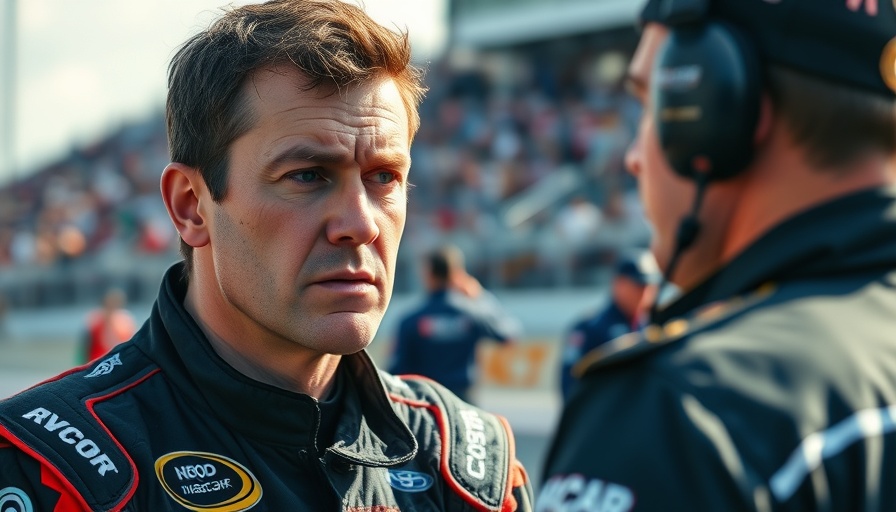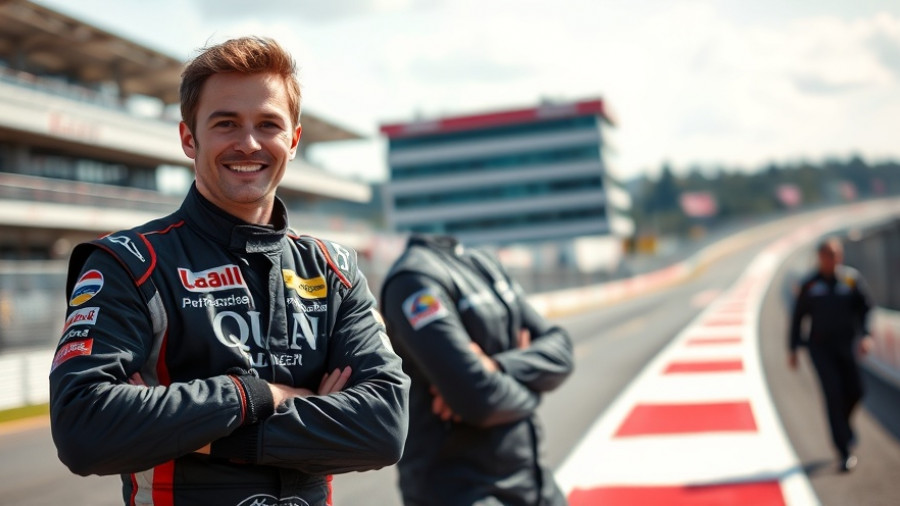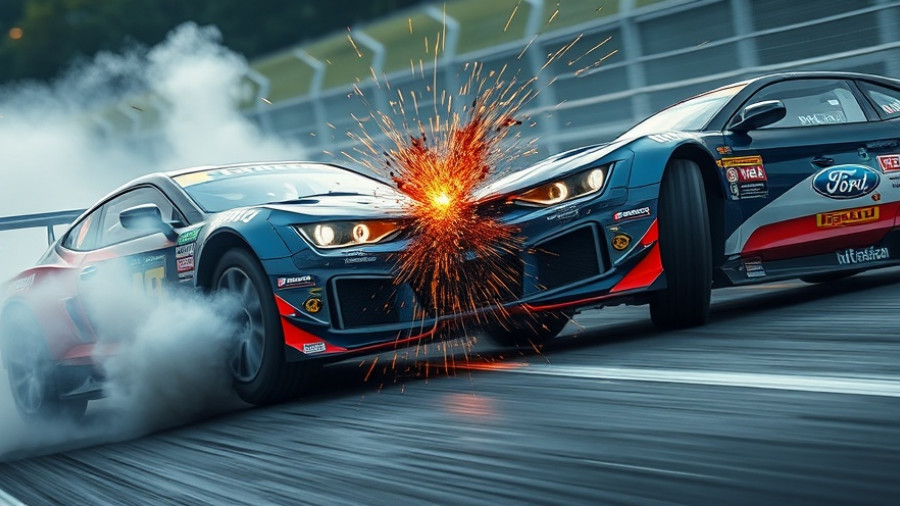
A Humbling Moment in Racing: Kyle Larson’s Crash and Reflection
In an intense NASCAR Xfinity Series race, Kyle Larson's bid for the lead took an unfortunate turn that would leave fellow driver Justin Allgaier's chances of a milestone win dashed. On a critical late-race restart, Allgaier, driving for JR Motorsports, had the momentum and the outside line as he dueled with Larson. However, as the two sped through Turn 2, Larson lost control and clipped Allgaier, ending a promising day for the #7 Chevrolet and leaving Allgaier frustrated.
The Emotional Toll on Drivers
After the race, a visibly shaken Allgaier expressed his disappointment. He was not only aiming for a pivotal win that would mark JR Motorsports' 100th victory, but he also wanted to secure a victory for team co-owner Dale Earnhardt Jr. “I hate it for our team...Unfortunately, Indianapolis is one of those places where it doesn't take much to have an incident like that,” he commented. This incident showcases the emotional highs and lows experienced in motorsports, a sentiment familiar to fans of both NASCAR and Formula 1.
Kyle Larson Takes Accountability
Larson, who finished fourth in the race, did not shy away from taking responsibility for the incident. “I wish I would have gotten clear there off of Turn 1...I just got enough and got just a little bit loose,” Larson stated remorsefully. This acknowledgment of his mistakes highlights a critical aspect of sportsmanship, reminding fans that even the best drivers can face moments of vulnerability. It offers a stark reminder of the thin line between contention and calamity in racing, applicable to both NASCAR and Formula 1.
Looking Ahead: Lessons from the Race
As Larson prepares for the upcoming NASCAR Cup race at Indianapolis Motor Speedway, the lessons learned from this episode may linger. The balance between aggression and control is paramount in racing, echoing the sportsmanship that is foundational in motorsports. Fostering a culture of accountability, as demonstrated by Larson, is vital for the integrity and camaraderie among drivers.
In conclusion, races like these serve as not just contests of speed but as valuable learning experiences for everyone involved. Racing fans—both NASCAR enthusiasts and followers of Formula 1—know that each incident on track can carry deep implications beyond just the final standings. It influences team dynamics, driver morale, and ultimately, the way we celebrate sportsmanship.
 Add Row
Add Row  Add
Add 




Write A Comment